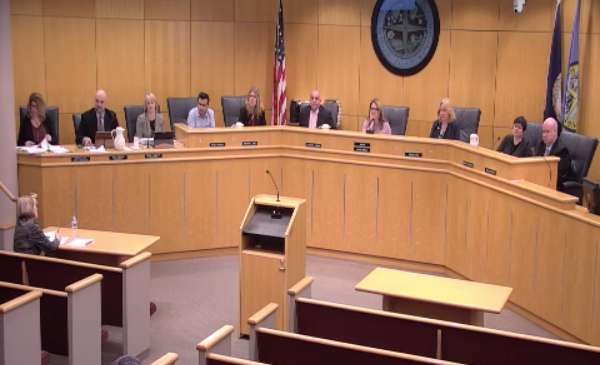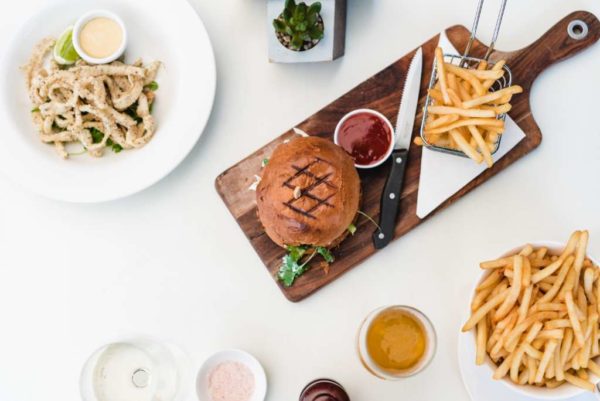The Town of Herndon’s 1.25 percent increase in its meal tax has generated some backlash from local residents — prompting Town of Herndon Mayor Lisa Merkel to clarify why the tax was increased from 2.5 to 3.75 percent last week.
In a statement on Saturday (April 27), Merkel said the increase was necessary to cover an unexpected $1 million shortfall in revenue from business professional occupancy license taxes. The estimated price tag for several capital projects also spiked, she said.
The increase could bring around $900,000 in revenue to cover funding for road projects, hiring an assistant town attorney, parks and recreation events, and connecting crosswalks that are unsafe and not ADA-compliant, Merkel said.
“I know raising taxes isn’t popular and it is not a vote that I took lightly,” she said. “If you go back and look at all the discussions, staff reports and PowerPoints, you will that it was not a flippant decision.”
Merkel said her nine years of experience on the council demonstrates that raising taxes is not a go-to approach. Ultimately, the move could generate cost savings, Merkel said. The town currently outsources legal work that the town attorney cannot take on at a high rate, she said.
“With Metro and the growth we are facing in the area the town is dealing with many more complicated legal issues than in decades past when we were a much sleepier little town,” she said.
Merkel’s entire statement is below:
Tuesday night the Council voted to pass our FY2020 budget. For the first time in many years the council raised the meals tax by 1.25%. I understand that many do not favor this decision and I want you to know that I certainly did not make the decision lightly. I think my record on council for the past nine years demonstrates that I am not someone who looks immediately to raising taxes whenever there’s a tough budget before us, so I hope you’ll read along to see my reasoning for my vote supporting this increase.
The additional revenue generated will be funding road projects for the most part. The town suffered a very unexpected $1million shortfall in BPOL (Business Professional Occupancy License taxes) revenue this budget cycle, and several road projects that have been in the CIP (Capital Improvement Plan) for years have had a significant increase in their estimated costs. After a lot of grappling our Town Manager suggested a 1 cent meals tax increase to offset the difference (1 cent meals tax is approximately $900k of revenue.) BPOL is paid mostly by people who do not reside in the town (it is business professional occupancy license fees and is based on gross receipts of the business, the larger the business, the larger the fee. Most of our Herndon businesses are 10 employees or fewer, so you can surmise that a very large company is the reason behind this loss of BPOL revenue) Meals tax is also paid mostly by people who do not live in the town, but use our roads, police, etc. Herndon is an employment center where more than 17,000 people come to work every day, and the biggest portion of our meals tax comes from the M-F lunch crowd.
It was NOT an easy decision for me. The additional .25 that was added was a result of trying to cover some unfunded priorities that were important to the town – some parks and rec events related to the farmers market and family fun days and connecting some sidewalks and completing crosswalks that are currently unsafe and some that are not ADA compliant.
It will also allow us to hire an assistant town attorney which will ultimately save the town money because now we are outsourcing some legal work that the Town Attorney cannot take on, and that is at a MUCH higher hourly rate. With Metro and the growth we are facing in the area the town is dealing with many more complicated legal issues than in decades past when we were a much sleepier little town.
I know raising taxes isn’t popular and it is not a vote that I took lightly. If you go back and look at all the discussions, staff reports and PowerPoints you will see that it was not a flippant decision. Honestly, without the $1million dollar BPOL shortfall I would have likely voted against this increase, because it wouldn’t have been necessary. And I do support the projects these monies will fund. Which is ultimately why I decided to support it.
I understand that not everyone is happy with the meals tax increase; that’s just how these things go. I will still be supporting our local Herndon restaurants because this is home, and I love our local restaurant scene. Did you know that restaurants receive a 6% rebate for remitting the meals taxes they collect on our behalf on time? (This is a fairly typical practice in the commonwealth) and the large majority take advantage of this.
Please remember that since 2010 Herndon’s real estate tax RATE has not increased. In fact we decreased it once in 2011. Every single surrounding jurisdiction has raised their RE rate multiple times during that time frame, even as assessments have increased. I am proud of the fact that Herndon has worked to not put our property owners in that situation.
If you’ve read this entire post, Thank you. If you would like additional information on the discussions and reasons behind this difficult decision I’d be happy to hear from you and share more of my perspective. Thanks again for joining me in caring about our hometown.
Photo via Town of Herndon
The Herndon Town Council adopted a $53.9 million budget this week for fiscal year 2020, representing a 10.4 percent decrease over last year’s budget.
Although real estate taxes were unchanged this year, the town’s meals tax increased from 2.5 to 3.75 percent — a move that town officials said was necessary to fund capital improvements, the Herndon Police Department’s operations, an assistant town attorney position, and restoration of parks and recreation programs.
Fiscal year 2020’s recurring expenditures increased by 2.2 percent over last year from $35.2 million to $36.3 million. Overall, expenditures increased nearly 3 percent over last year.
Other taxes like the cigarette tax and business professional and occupational license tax remained unchanged. The water service rate increased from $5.87 in FY 2019 to $6.19 per 1,000 gallons of water consumption in FY 2020.
Recycling fees doubled from $16 to $32 per year. Personnel costs also increased by $805,359 over last year, totaling nearly $28.1 million of the overall budget.
Town officials said that this year’s budget continues to prioritize Metro planning, downtown redevelopment, the efficiency of town operations and capital improvements.
“We appreciate everyone who called, emailed, and provided in-person comments throughout the budget deliberation process,” said Mayor Lisa Merkel. “The newly-adopted budget funds the programs and service our citizens have told us are important to them.”
The next fiscal year runs from July 1 of this year to June 30, 2020.
Photo via Town of Herndon
Restaurant-goers in the Town of Herndon will likely see their total bill go up this year after the Herndon Town Council approved an increase in the town’s meals tax Tuesday night.
In a 5-2 vote, the council increased the meals tax — which covers all meal purchases at food establishments — from 2.5 to 3.75 percent. Town officials said the hike is necessary to meet a revenue shortfall for capital improvement projects in the town. Councilmembers Bill McKenna and Jennifer Baker voted against the increase.
Some business owners and Town of Herndon residents criticized the measure for putting local businesses at a competitive disadvantage. Others said the tax unfairly singles out one industry and could regressively impact people with low incomes who rely on prepared meals.
Kristen Murphy, the general manager of the Washington Dulles Marriott Suites in Herdon, said her business was being “unfairly signaled out again.” She said she has lost business because clients looking to book the hotel have expressed concerns about the town’s occupancy and meals taxes.
Although the decision was tough, Mayor Lisa Merkel said the increase was the best way to boost revenue by minimizing the impact on Town of Herndon residents and property owners. The tax would apply to anyone who purchases meals in the Town of Herndon — including the 17,000 people who visit the town. Meals taxes are also a “predictable and stable source of revenue,” Merkel said.
“I don’t anticipate its something that will become a trend,” Merkel said, noting that other towns and cities in Virginia also levy meals taxes.
The meals tax has not gained traction in Fairfax County. Voters rejected a referendum to institute a meals tax in 2016.
Photo by Melissa Walker Horn/Unsplash
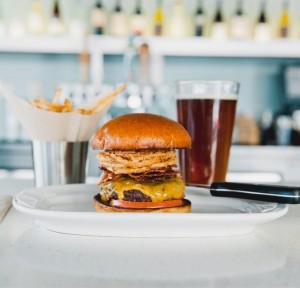 This is an op-ed submitted by George Mason University student Jalen Stubblefield. It does not reflect the opinion of Reston Now.
This is an op-ed submitted by George Mason University student Jalen Stubblefield. It does not reflect the opinion of Reston Now.
I grew up in Alexandria, VA and have lived here the vast majority of my life. I graduated from Edison High School in 2012, and will graduate from George Mason University this December. I am a Democrat and I oppose the Fairfax County Meals Tax. Here is why.
First and foremost, I understand that enrollment in schools has risen, and that teachers are severely underpaid. I understand the important role public education plays in America, ensuring that every child that works hard has the opportunity to succeed. What I do not understand is a Meals Tax.
Attending school at Edison, I had a number of friends that were growing up without parents in their household. No, the parents had not left them. They were working from early in the morning, sometimes before school started, to late at night, sometimes long after their children had slept.
Take my friend, we’ll call him Josh, his parents would drop him off long before school began, and he would walk home in the afternoon because his parents were working. For food, he was on the free-and-reduced meals program, and his parents would give him $5 for dinner since there was no time for them to cook during the week.
Josh’s story is typical. According to a report by the Commonwealth Institute, 8 percent of school-age children are growing up in poverty and 28 percent are on the free-and-reduced meals program. Read More
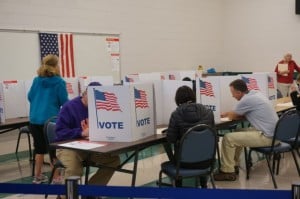 This is an op-ed by Reston resident Therese Martin. It does not reflect the opinion of Reston Now.
This is an op-ed by Reston resident Therese Martin. It does not reflect the opinion of Reston Now.
There have been so many misleading or incorrect comments about the proposed meals tax for Fairfax County during recent weeks that it is hard to know where to begin in pointing out how important its approval is for the citizens of our county.
Foremost, the Board of Supervisors is not proposing a rehash of last spring’s budget deliberations; it is proposing that they be given an important tool to use in making budget decisions in future years.
Each year, our elected representatives must balance the needs of the county’s residents against the resources available to them. Many Fairfax residents apparently don’t realize that counties in Virginia don’t have many tools to use [including use of an income tax as proposed in a recent letter in the local press]. Other than one-time grants and permits or fees that it caps, Virginia pretty much limits counties’ ability to fund services to the levy of property taxes. In some years, the state actually takes back a part of the funds it provides to localities in order to balance its budget.
[We just recently heard that Virginia’s well-publicized plan to increase teacher salaries is on the chopping block because of its anticipated budget shortfall. Thus any increase in Fairfax teacher salaries to bring them up to the level of surrounding jurisdictions will depend on the local property tax.]
 This is an op-ed from Reston resident Lynda Reyes. It does not reflect the opinion of Reston Now.
This is an op-ed from Reston resident Lynda Reyes. It does not reflect the opinion of Reston Now.
I am writing in support of the Meals Tax. My parents risked their lives to come to this country. They had nothing when they arrived, but they worked long hours at low wages to provide my family with opportunities that are not available in other countries. We made Fairfax County our home, but because of the rhetoric surrounding the Meals Tax, we do not feel welcome here anymore.
In conversations and online comments, there is a consistent emphasis on the burden imposed by kids who are not white and wealthy. One commenter on FCPS School Board member Pat Hynes’ recent op-ed stated that “the outputs of English language learners, special education students, emotionally challenged students, and less financially advantaged students is incommensurate with the financial input” — in other words, it is supposedly a waste of money to educate immigrant kids, kids with special needs, and poor kids. Read More
This is an op-ed by Tony Shivers, Vice President of Advocacy for the
Fairfax County Council of PTAs (FCCPTA). It does not reflect the opinion of Reston Now.
 As Vice President of Advocacy of the Fairfax County Council of PTAs, I urge my fellow parents, residents, and business owners to vote YES for the non-partisan meals tax on Nov. 8.
As Vice President of Advocacy of the Fairfax County Council of PTAs, I urge my fellow parents, residents, and business owners to vote YES for the non-partisan meals tax on Nov. 8.
For just a few pennies more:
- A 4-percent tax on prepared meals will generate $100 million for schools and county services, with $28 million being paid by tourists and visitors to Fairfax;
- FCPS will receive 70 percent of those revenues to help stem the loss of our best teachers and address classroom size;
- County services will receive 30 percent of net revenues to address unmet public safety needs and those of our libraries and parks;
- Fairfax County can diversify its tax base and relieve property tax pressure on homeowners while maintaining its AAA bond rating; and capture revenue from travelers and non-resident workers that utilize County programs and services.
Why a meals tax, rather than a tax on cigarettes or alcohol? The answer is simple. Virginia state law strictly limits the taxing authority of its counties — a meals tax is the only option at this level of government.
Why not pursue state funding? The short answer is that our children will be grown by the time state funding is brought to an appropriate level for Fairfax County. The state continues to push more of the cost of K-12 education back to localities. Fairfax County estimates that the shortfall in state funding for K-12 education has climbed to more than $1 billion annually since 2009.
In fact, the reliability of the state money promised to education is now in question. Virginia Gov. Terry McAuliffe recently advised the state legislature that that Commonwealth may experience as much as a $1.5 billion revenue shortfall in its two-year budget.
Historically, PTA is an advocacy organization, and the efforts of parents have resulted in immunizations, school lunches, child labor laws, among other accomplishments. PTAs do not promote candidates for election, but they do promote issues which benefit children.
Virginia PTA supports any meals tax where 50 percent of the revenue goes to public schools. Here in Fairfax the proposed meals tax would do far more.
The PTA’s motto is “Every Child. One Voice.” All Fairfax County children need the best education our community can deliver. Parents, please vote yes for your children. Vote yes for the meals tax.
Tony Shivers
Vice President of Advocacy
Herndon, VA
 This is an Op-Ed from Pat Hynes, Fairfax County Public School Board’s Hunter Mill representative, about the Meals Tax referendum that will put to county voters on Nov. 8. It does not reflect the opinion of Reston Now.
This is an Op-Ed from Pat Hynes, Fairfax County Public School Board’s Hunter Mill representative, about the Meals Tax referendum that will put to county voters on Nov. 8. It does not reflect the opinion of Reston Now.
If you had told me, when I was running for school board five years ago, that I would spend so much time talking about money and taxes, I might have been a little discouraged. But advocating for revenue is part of the job — the people of this community expect excellent schools with world-class curricular and extracurricular programs, and we’re smart enough to know that you get what you pay for in this life.
I learned early on that school funding in Virginia has some serious structural challenges — we send at least three times as much revenue down to Richmond as we get back for our schools and other critical public services. And then Richmond ties our hands when it comes to raising revenue locally for local needs.
A meals tax is one of very few options available to local governments, which is why two-thirds of Virginia counties — and most towns and cities — have adopted a meals tax to help balance their reliance on property taxes.
Local revenue since 2008 has not kept pace with growing population and rising costs. That is certainly true for the school system. Between 2008 and 2015, the gap between revenue and needs was so wide that by fiscal year 2015 the school system was spending $1000 less per child — in real dollars — than in 2008. We got there by freezing teacher pay and raising class sizes several times, and annual cuts to central office. Read More
 The League of Women Voters of the Fairfax Area is co-sponsoring a forum this week on the proposed Fairfax County meals tax.
The League of Women Voters of the Fairfax Area is co-sponsoring a forum this week on the proposed Fairfax County meals tax.
The question of a 4-percent tax on meals and other prepared foods will be presented to voters in the general election Nov. 8. The tax would add an additional $100 million annually to county coffers. Seventy percent of it would go to Fairfax County Public Schools.
Surrounding jurisdictions such as Alexandria, Arlington, the District, and the towns of Herndon, Vienna already have meal taxes.
Fairfax County last held a referendum on a meals tax in 1992. It failed.
Proponents say it is a necessary way to diversify revenue without continuing to raise property taxes. Opponents say it will hit lower income people the hardest and it is unfair to the restaurant industry, among other issues.
Here is what you need to know:
The forum is Thursday, Sept. 29, 7 to 9 p.m. at Luther Jackson Middle School Auditorium, 3020 Gallows Road, Falls Church.
The moderator will be Mary Kimm, editor of the Connection newspapers.
The panelists in opposition to the meals tax will be Springfield Supervisor Pat Herrity (R) and Jon Norton from Great American Restaurants. The panelists in support of the meals tax will be FCPS’ Hunter Mill School Board rep Pat Hynes and Phil Niedzielski-Eichner, management consultant.
The panel will take questions from the audience. Questions may also be submitted in advance by writing to [email protected] or by taking a survey.
 This is an op-ed by Frank Sullivan of Chantilly. It does not reflect the opinion of Reston Now.
This is an op-ed by Frank Sullivan of Chantilly. It does not reflect the opinion of Reston Now.
In the Nov. 8 General Election, a meals tax ballot question will ask Fairfax Country voters to allow the Board of Supervisors to impose an additional tax on prepared foods. Below are six reasons why voters should vote (Vote No) against the imposition of this meals tax:
- The tax on prepared foods in the county will increase to 10 percent, a 4-percent meals tax plus the current 6-percent state sales tax. This tax will not only apply to what one purchases in restaurants, but to all prepared foods and beverages regardless of where purchased (grocery stores, restaurants, lunchrooms, cafeterias taverns, coffee shops, cafes, delis, food trucks, etc.).
- The ballot question leads one to believe the meals tax will reduce the dependency on real estate taxes. The facts are the Board recently approved a property tax increase of $1.13 per $100 which represents an increase of 6 percent to the average homeowner. This now represents an increase of 26 percent over 5 years. The average annual Real Estate tax bill will increase $304, this on top of the $185 increase from last year. Over the last two years, the Board also has voted to increase stormwater taxes, sewer service charges, and youth athletic fees all the while voting to raise their own pay by 27 percent. If anyone believes the meals tax will provide property tax relief, recall that the Board promised to eliminate the Car Tax (i.e., personal property tax) — we are still paying the Car Tax. Enough is enough on more taxes.
- While there are exceptions to the meals tax, the exceptions will only apply to very few living in the country. This is a regressive tax that will impact the hard working middle class and those that can least afford it, including minorities and senior citizens.
- The Board would have voters believe that a portion of the meals tax revenue will be used for capital improvements and property tax relief and that the majority of the revenue would lead to higher teacher pay and funding for school classrooms. The truth is this revenue can go to various fund, including what the county budget generically calls ‘county services’. The Board also has shown it cannot be trusted to apply any of this revenue to property tax relief (again remember the Car Tax relief).
- The Board would have voters believe the country budget still suffers the impacts of sequestration. Supervisor Pat Herrity (Springfield) has identified areas of the budget that could be cut such as developer proffers and the $1 million earmarked for the Supervisors’ offices ($100,000 each) but has been ignored by the Board. If this were a responsible Board they would be willing to set priorities and address its fiscal issues, including conducting a review of the County’s spending and a review of the budget for waste before raising taxes once again
- Once this tax is passed, there is no guarantee that this tax will not increase.
Please join the Fairfax Families Against the Food Tax by voting NO to the meals tax question on the Nov. 8 ballot.
Frank W. Sullivan
Something on your mind? Send opinion letters to [email protected]. Reston Now reserves the right to edit letters for clarity.
 As Fairfax County residents are receiving a meals tax fact sheet in the mail, advocates on both sides of the issue are organizing for a battle this fall.
As Fairfax County residents are receiving a meals tax fact sheet in the mail, advocates on both sides of the issue are organizing for a battle this fall.
The meals tax referendum will be on the Fairfax County general election ballot on Nov. 8. It’s the first time since 1992 that voters will get a say on whether the county will add a meals tax to diversify its tax base. The 1992 referendum failed, and while the topic has been brought up nearly annually in recent recent years, it has not been presented to the voters.
The 4-percent meals tax would add about $100 million to county coffers annually, according to the fact sheet. About 70 percent would go back to Fairfax County Public Schools. The other 30 percent would go to county programs and services.
The 4-percent tax would be in addition to a 6-percent sales tax. Nearby jurisdictions such as the District of Columbia, Arlington and Alexandria have a meals tax, as do towns of Vienna, Herndon, Clifton, Falls Church and Fairfax City (those towns’ rates would stay the same; diners would not pay an additional county tax).
Not surprisingly, many school board members and civic groups fall in favor of the tax, while many restaurant owners are against it.
The food tax foes have organized into a new group called Fairfax Families Against the Food Tax.
Fairfax Families Against the Food Tax says it has about 1,500 individuals, as well as a host of businesses behind it. Included in the businesses are Reston restaurants American Tap Room; Be Right Burger; Clyde’s; Glory Days Grill; the Greater Reston Chamber of Commerce; Hyatt Regency Reston; Jackson’s; and Silver Diner.
The group says the 4-percent tax on top of the 6-percent sales tax for all prepared foods and ready-to-eat meals from restaurants, grocery stores, movie theaters, gas stations, food trucks, hot dog stands, coffee shops, pizza delivery, and hotel food will be too much burden on some customers.
“This isn’t just a meals tax,” Jon Norton, Partner at Great American Restaurants (which includes Jackson’s), said in a statement. “In reality, it’s much broader than that because it adds an extra tax on people and families who are trying to buy prepared food items or even dine out as a family at their favorite restaurant. This really is a food tax.” Read More
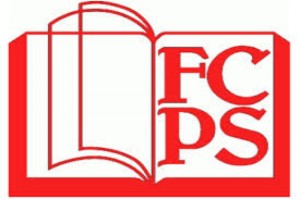 This is an op-ed from Vienna resident Jason V. Morgan. It does not reflect the opinion of Reston Now.
This is an op-ed from Vienna resident Jason V. Morgan. It does not reflect the opinion of Reston Now.
Something on your mind? Send an opinion to [email protected]. Reston Now reserves the right to make edits to accepted submissions.
Dear Editor,
I am writing because there was a major misrepresentation of Fairfax County’s budget in the August 4, 2016, commentary submitted by Claude Andersen (Director of Operations, Clyde’s Restaurant Group).
Mr. Anderson opposes the upcoming meals tax referendum, but he is providing very bad information to justify his position. Mr. Andersen erroneously claims that the Fairfax County budget has increased by almost $1 BILLION since 2012.
However, the nominal growth since 2012 is only $442.1-474.8 MILLION, depending on whether one looks at FY2012/FY2016 or FY2013/FY2017. And in inflation-adjusted terms, the growth is only $265.1-298.4 MILLION (2016 dollars). Read More
 This is an op-ed by Pat Hynes, Fairfax County Public Schools Board member representing the Hunter Mill District. She is speaking for herself and not the entire school board in this post, which also does not represent the opinion of Reston Now.
This is an op-ed by Pat Hynes, Fairfax County Public Schools Board member representing the Hunter Mill District. She is speaking for herself and not the entire school board in this post, which also does not represent the opinion of Reston Now.
If you’ve ever participated in a “Dining for Dollars” event for your local school, you know how important the relationships between school PTAs and neighborhood restaurants are.
That’s why when the Fairfax County Board of Supervisors recently voted to put a meals tax referendum on the November ballot, they were careful to signal that some of the revenue — about $3 million annually — would go back to restaurants to pay the costs of collecting the tax. As we diversify and stabilize our community’s revenue base for important needs like the school system, local businesses must be supported as well.
Counties in Virginia have very little flexibility or authority when it comes to generating revenue, and a meals tax is one of those few options. Read More
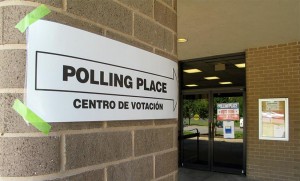 This is a commentary by Claude Andersen, Clyde’s Restaurant Group Director of Operations. It does not represent the opinion of Reston Now.
This is a commentary by Claude Andersen, Clyde’s Restaurant Group Director of Operations. It does not represent the opinion of Reston Now.
Fairfax County government officials are gearing up for an election year battle. Granted, they’re not up for election, but there’s a high-stakes question on the Nov. 8 ballot that will impact our county in far-reaching ways.
It’s meals tax proposal by the County Board of Supervisors that would impose an additional 4-percent tax on all prepared foods and meals in our county — on top of the existing 6 percent sales tax already in effect.
The meals tax would raise an estimated $100 million per year in new tax revenue, and comes on top of the $100 million increase in real estate taxes imposed on county property owners in just last year.
Calling it a “meals tax” is misleading. Besides adding another 4 percent on top of the 6 percent (for a total of 10 percent) already levied on every meal served at every restaurant in our county, from fast food to fine dining establishments, it doesn’t stop there.
The new tax would also be imposed on anything considered a “meal” — from beverages served with a meal to prepared foods — any ready-to-eat food you buy from a restaurant, deli, cafeteria, lunchroom, bar, push cart, food truck, hot dog stand, convenience store, gas station, grocery store or hotel banquet costs would be taxed an additional 4 percent for a total of 10 percent.
For people at any income level, that’s a significant portion of the food they buy and, while it’s not a tax on groceries, it’s about as close as you can get.
The claim is that 70 percent of the new taxes would go to fund the county’s schools, with the remaining 30 percent dedicated to county services, capital improvements, and property tax relief.
(It’s interesting to note that while they just raised taxes on homeowners they now want to provide “relief” by asking those same people to pay more for prepared meals! It’s asking property owners to pay again for their own “relief.”) Read More
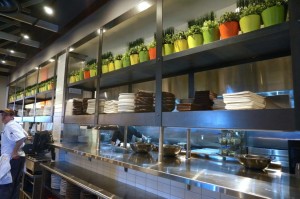 Coming soon to a mailbox near you: The Fairfax County official information sheet on the upcoming meals tax referendum.
Coming soon to a mailbox near you: The Fairfax County official information sheet on the upcoming meals tax referendum.
In June, the Fairfax County Board of Supervisors approved the referendum for the Nov. 8 election, saying then they were prepared for a battle on the issue.
Ultimately, it will be up to Fairfax County voters to decide whether the county will get a 4-percent meals tax, similar to what is already in place in the towns of Herndon and Vienna; Fairfax City; and Arlington and Alexandria.
The addition of a meals tax has been discussed for years, but was last put to referendum in 1992, where it failed.
But with the county and its school system continually in a budget crunch, Hunter Mill Supervisor Cathy Hudgins motioned last spring to revisit the issue.
The tax would raise about $100 million annually, 70 percent of which would go to Fairfax County Public Schools. About $3 million would go back to the restaurants themselves to offset the cost of the tax to the businesses.
Meanwhile, take a look at the details from the county in the document below.
2016 Meals Tax Referendum Pamphlet by Karen Goldberg Goff on Scribd
Photo: Not Your Average Joe’s Reston/file photo



